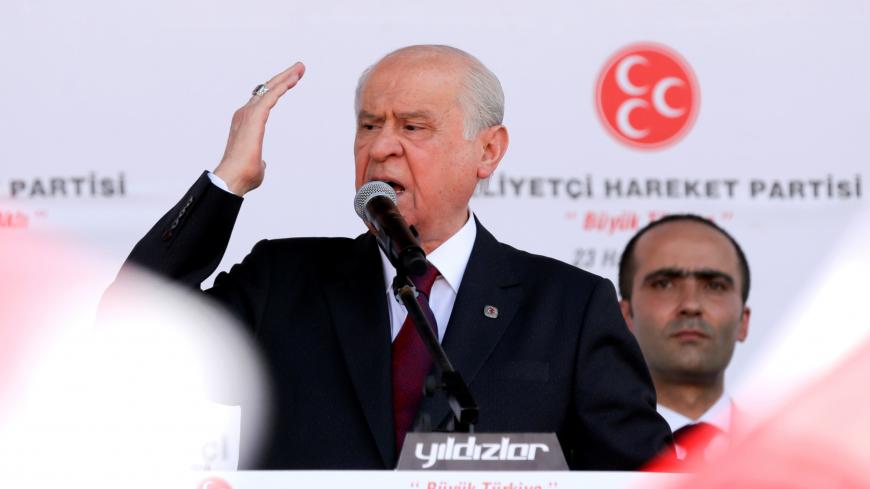The most unexpected result from Turkey's June 24 elections was the Nationalist Movement Party (MHP) winning 11.1% of the vote. The MHP had formed a coalition with the ruling Justice and Development Party (AKP), because all the polls predicted that the MHP could not reach the 10% threshold to enter parliament. Competition from the new Good Party (IYI), an MHP offshoot, was thought to be the cause.
The IYI entered into an alliance with the main opposition Republican People's Party (CHP) for the same basic reason. The IYI indeed failed to surpass the vote threshold, with 9.96% of the vote, but it still made it into parliament through its coalition with the CHP. Thus, 20% of parliament's representation is ultra-nationalist. Considering that the AKP also counts former MHP members among its ranks, a seasoned AKP bureaucrat told Al-Monitor, “At least one in every four lawmakers in the new parliament has an ultranationalist background.” All told, 65% of the seats belong to right-wing parties.



